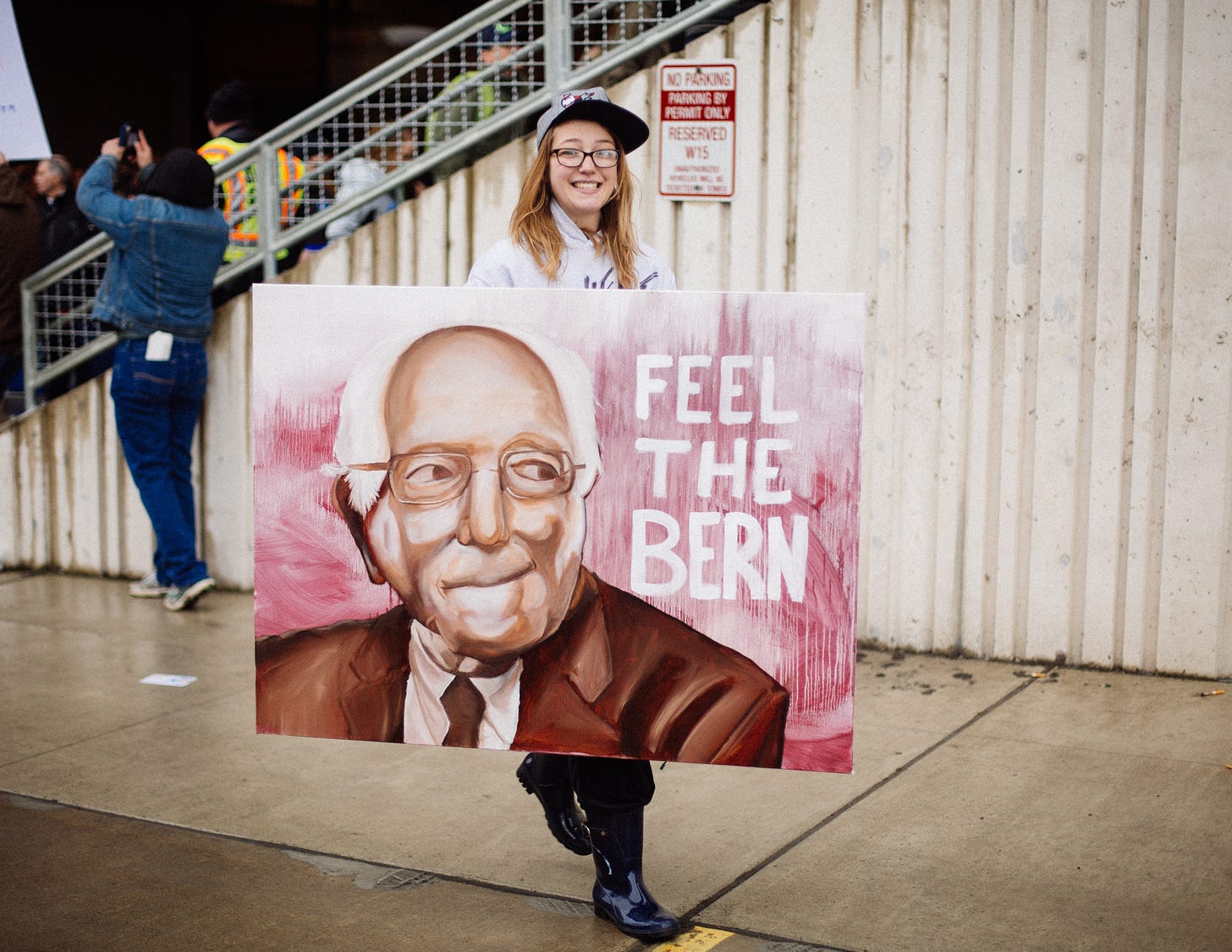The Democrats' State of Play

Despite the pile-on in Charleston, Bernie Sanders continues in the polling lead. Joe Biden will win South Carolina. Super Tuesday is two days later. The Democratic Party is in full freakout mode over Sanders. Republicans are giddy at the prospects of a Sanders nomination.
The upside for Democrats is that they have realized Bernie Sanders is a threat to their establishment far sooner than the GOP realized Trump was a threat to theirs. The downside for the Democrats is that they have fully proportional primaries. With the GOP, at least, there were primaries where a candidate could martial his forces and win all the delegates. Democrats do not. As long as a candidate clears fifteen percent of the vote, the candidate gets delegates.
Bernie Sanders has the most delegates. On Tuesday, despite Mike Bloomberg spending more than all the other candidates combined in California, Sanders will win the state. Polling estimates right now have Sanders winning 270 delegates in California. He is also surging in Texas and could tie or beat Biden there in large part because Mike Bloomberg is taking votes from Biden. Pollsters who have asked about support with and without Bloomberg have found Biden beats Sanders in many more states without Bloomberg on the ballot.
Super Tuesday will see races in Alabama, American Samoa, Arkansas, California, Colorado, Maine, Massachusetts, Minnesota, North Carolina, Oklahoma, Tennessee, Texas, Utah, Vermont, and Virginia. Polling data is limited in most of these states, but what we have suggests Sanders will win most of them. One week later, voters will vote in Idaho, Michigan, Mississippi, Missouri, North Dakota, and Washington. It will not be till March 17 that Bloomberg has a really big night. He should shut out Sanders in Florida. Florida has 248 delegates to the Democrat convention. Bloomberg and Biden are going to take all the delegates according to current polling.
Therein lies the problem. People and polls are fickle. With Biden winning South Carolina, he could gain renewed momentum like Bill Clinton in 1992. But Clinton in 1992 ran under different rules than the current Democratic Party rules. Likewise, we do not know Biden’s margin of victory. Tom Steyer is polling well with black voters and that could make Biden’s win narrow. The media would start circling Biden like vultures.
Biden could pick off Sanders in Texas, which will get more media attention than a big night for Sanders in California because most people will be asleep before the California results come in. But this too depends on how voters interpret a Biden win in South Carolina. A big Biden win on Saturday night helps Biden in Texas. A narrow one may be what pushes Sanders into the permanent lead with Texas’s Hispanic voters and young voters coming to his aid.
Democrats still have an opportunity to stop Sanders, but Sanders continually picking up delegates even in second or third place helps him. Voters like winners and they convince themselves that the guy winning the primaries can win the general election. Sanders, even not winning in places like Florida, is still winning more than the rest of the field. In fact, Sanders has a very real path to beating Donald Trump in November. Sanders polls well in Michigan and Pennsylvania and is close to Trump in Wisconsin. If he wins those three states, he wins.
But, as Pete Buttigieg noted on the Charleston debate stage, Sanders is also the candidate most likely to cost the Democrats the House and lock in Republican Senate gains. Whoever wins at the state legislative level in 2020 will be in charge of redistricting. Sanders at the top of the ticket actually presents Democrats with a real path to victory by putting back together the Obama coalition. But in so doing, he would cost Democrats suburban areas and state legislative seats.




